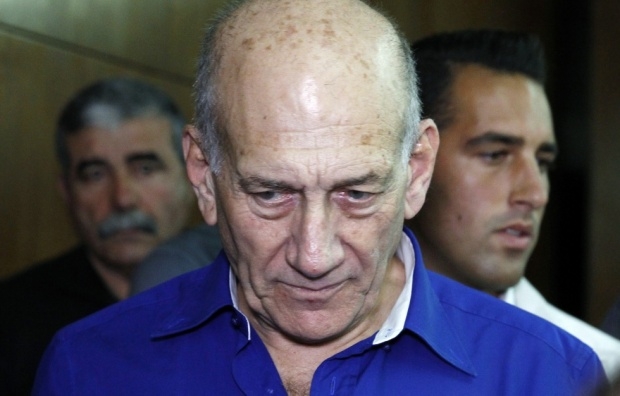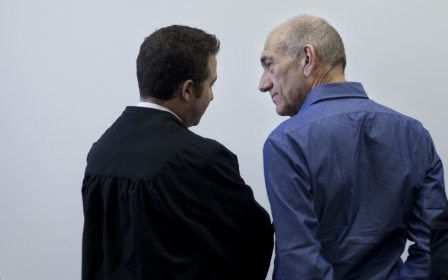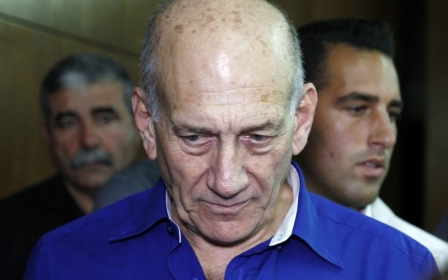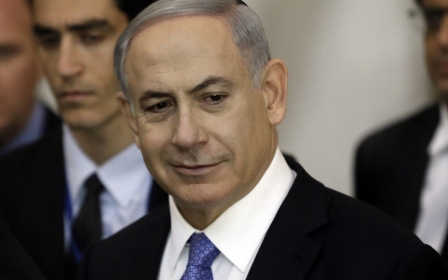Former Israeli premier Ehud Olmert found guilty in corruption case

A Jerusalem court found former Israeli Prime Minister Ehud Olmert guilty of corruption on Monday over allegations that he received envelopes of cash from a US businessman, Israeli media reported.
The former premier, who already faces a six-year prison sentence in a separate bribery case that he has appealed to the Supreme Court, will be sentenced on 5 May, the reports said.
Olmert was found guilty on charges of fraud and breach of trust in a retrial in the “cash envelopes affair”. He was acquitted on charges of breach of trust in 2012, but a retrial was ordered last year after a plea bargain with the prime minister’s former office manager, Shula Zaken, allowed for the introduction of new evidence.
A judge on the new panel, Rebecca Feldman Friedman, said there was enough evidence to overturn the earlier verdict.
"In light of the new findings, we are changing the verdict," the judges said.
Olmert’s acquittal in the affair sparked unprecedented criticism, in part because it effectively sanctioned his receipt, over a period of years, of envelopes from US businessman Morris Talansky containing hundreds of thousands of dollars that went unreported.
During initial questioning by police, Olmert denied having received money from Talansky. But in court he admitted to receiving the funds, although he claimed that the money was for permitted political purposes, according to Israeli daily Haaretz.
Audio recordings made by his former officer manager Zaken, about which she testified in the retrial, disclosed that Olmert persuaded her not to testify in the first trial, out of fear that she would incriminate him.
The maximum sentence for fraud under aggravating circumstances is five years in prison. The maximum penalty for breach of trust is three years, but most courts favour punishment ranging from community service to one year imprisonment.
Olmert's lawyer, Eyal Rosovsky, said in response that "we are obviously very disappointed. We had hoped to convince the court not to overturn the verdict. We still have not read the ruling," reported Haaretz.
Middle East Eye propose une couverture et une analyse indépendantes et incomparables du Moyen-Orient, de l’Afrique du Nord et d’autres régions du monde. Pour en savoir plus sur la reprise de ce contenu et les frais qui s’appliquent, veuillez remplir ce formulaire [en anglais]. Pour en savoir plus sur MEE, cliquez ici [en anglais].




